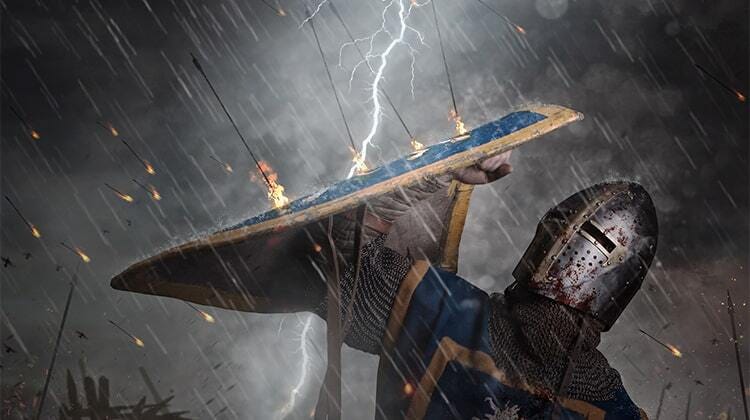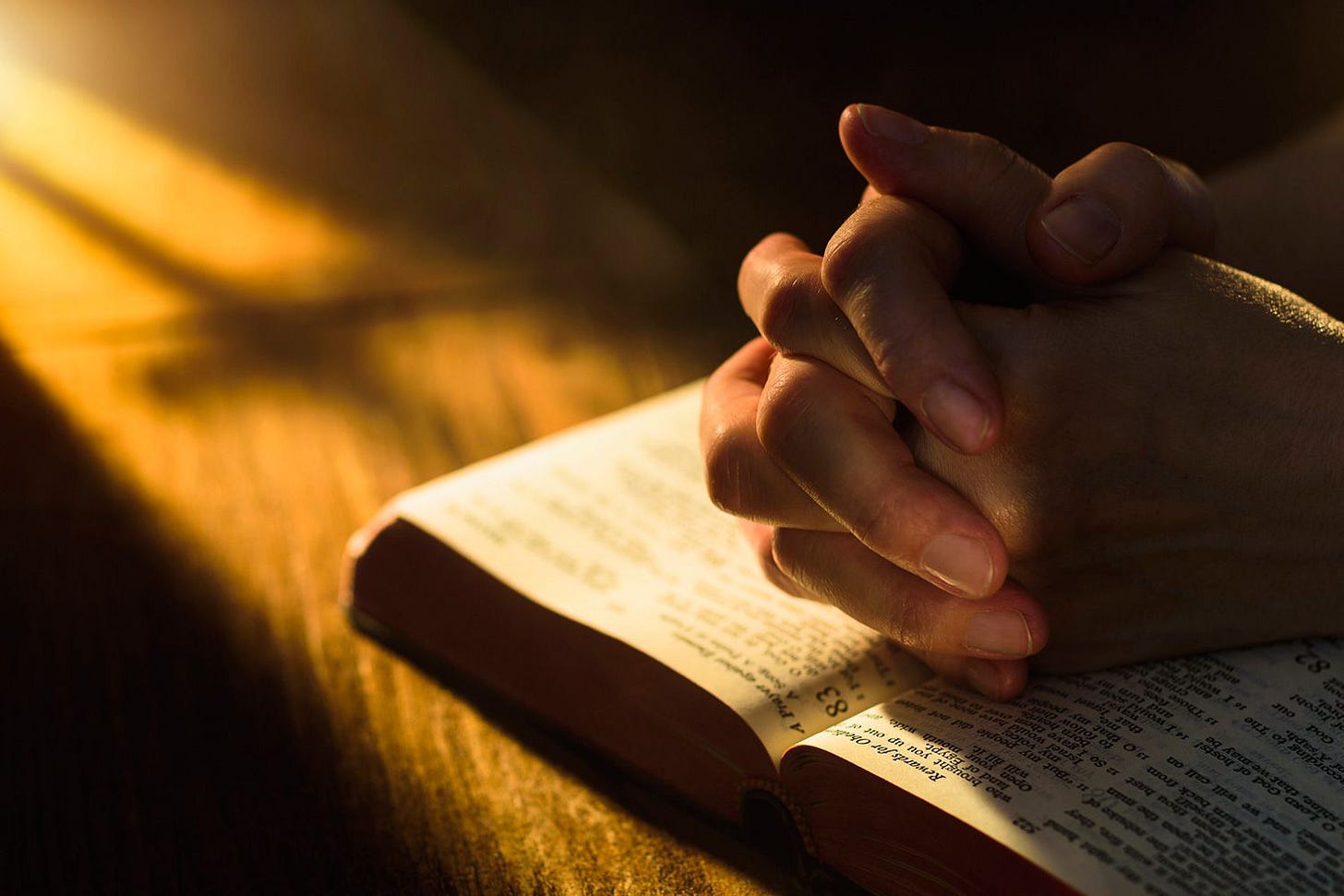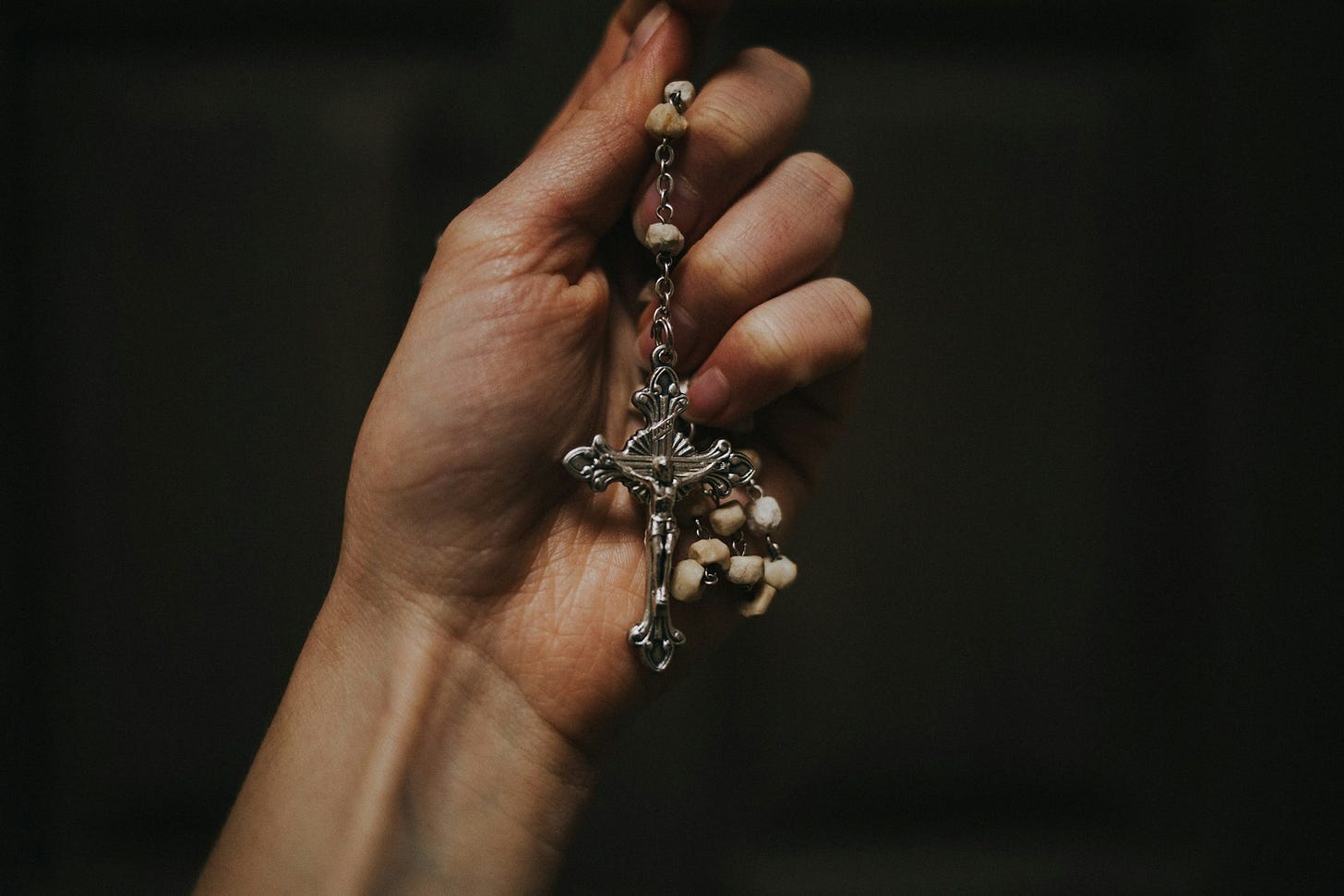A Weapon Against Lies
How One Preacher Won the Cultural Combat
On August 4, 1221, St. Dominic Guzmán, the founder of the Order of Preachers, entered eternity. This year marks the 804th anniversary of his death, and while the world barely notices, the faithful should pause and remember a man whom Pope Benedict XV called “the light of the Church, the salt of the earth, the trumpet of the Gospel, the hammer of heretics.” For in Dominic’s life and legacy, we find a holy antidote to our own age of confusion, a century that, like his own, is infected by the virus of falsehood, pride, and rebellion against God.
St. Dominic did not begin with visions of grandeur. He was born into a time of fracture and fire. The Albigensian heresy (a neo-Gnostic sect that denied the goodness of creation and glorified suicide as a means of release from the body) was spreading across Southern France, seducing thousands and sowing social chaos. Like today’s cultural heresies: gender ideology, transhumanism, and modern neo-Gnosticism, it promised liberation by denying the body and natural order. It looked pious, spiritual, even “loving.” But it led to destruction.
Instead of railing from a distance, Dominic went to the very heart of the heresy and lived among the people. He wore no finery, embraced poverty, debated with precision, and prayed with tears. “Arm yourself with prayer rather than a sword,” he said, “wear humility rather than fine clothes.” It was this evangelical approach, radical fidelity to Christ, intellectual clarity, and authentic witness, that bore fruit. His Order would later be called the “Domini canes,” the “Hounds of the Lord,” trained to chase down heresy with love and truth.
But perhaps his greatest legacy, and the one most needed now, is the promotion of the Holy Rosary.
The Rosary in a Time of Apostasy
According to longstanding tradition, the Rosary as we know it was given by the Blessed Virgin Mary to St. Dominic during his mission to combat heresy. She entrusted it to him not as a mere devotional practice, but as a spiritual weapon. “Preach my Psalter,” she said, “if you want to reach these hardened souls.” And so he did.
Why would Mary give the Rosary in a time of doctrinal and moral chaos? Because the Rosary, rightly prayed, catechizes the mind, forms the heart, and disciplines the will. It is a sacramental liturgy of meditation and repetition that drills the mysteries of the Gospel into the soul. As Pope Pius XII wrote, the Rosary is “a compendium of the entire Gospel.” It is no coincidence that wherever the Rosary has spread, so too has true doctrine, family healing, and cultural renewal.
Our own age mirrors the crisis Dominic faced. Ours is a post-Christian West, plagued not by Albigensian dualism, but by relativism and self-deification. In place of humility, pride. In place of chastity, lust. In place of truth, feelings. We, too, are witnessing a new “crusade” of ideology, radical gender theory, transhumanism, euthanasia, and scientistic reductionism, that rejects both reason and Revelation. The world has swapped the Creator for the creature, and the cosmos for the chaos of the will.
In such a time, the Rosary is not sentimental jewelry. It is a chain that binds the soul to the mysteries of Christ and shackles demons. Pope Leo XIII declared, “The Rosary is the most excellent form of prayer and the most efficacious means to attain eternal life. It is the remedy for all our evils.” And St. Padre Pio, echoing Dominic, called it “the weapon for these times.”
Dominic and the Restoration of Sacred Order
At the heart of Dominic’s mission was not simply doctrinal correctness. It was the restoration of sacred order through fidelity to the Covenant. The heretics of his day rejected not only Church teaching but the very goodness of the created order. They turned against the Incarnation, marriage, sacramental life, and ecclesial authority. It was an anti-covenantal rebellion, and in response, Dominic raised up a priestly and prophetic brotherhood who would preach Christ crucified and resurrected in season and out of season.
The Dominican Order would go on to produce some of the greatest theologians, philosophers, and saints in Church history: St. Thomas Aquinas, St. Catherine of Siena, St. Vincent Ferrer, and more. Each embodied the Dominican spirit: truth rooted in love, study married to prayer, and preaching fueled by penance.
This is what the Church needs today: not slogans, but saints. Not programs, but preachers. Not bureaucrats, but men and women aflame with the Gospel. There is a quote erroneously attributed to Benedict XVI, “The world offers you comfort. But you were not made for comfort. You were made for greatness.” The attribution may be false, but the concept is accurate.
Dominic understood this. His greatness was not in conquering lands but in converting souls. He knew that heresy must be opposed not only by theology but by sanctity, that only the fire of divine charity could outshine the lies of darkness. And so he spent his nights in prayer and his days on foot, preaching Christ.
In our time of comfort, we need his spirit of mortification. In our time of confusion, his clear articulation of doctrine. In our time of cowardice, his boldness for the Gospel.
The Rosary and Cultural Combat
Today, the Rosary is rising again as a sign of contradiction. From Poland to Nigeria, Ireland to India, lay apostles and religious communities are taking up this simple but profound prayer. It has become a rallying point for persecuted Christians, a daily discipline for countless fathers and mothers, and a school of contemplation for the weary and wounded. Why? Because the Rosary is not just about Mary. It is about Christ through Mary. It is the Marian lens into the heart of the Paschal Mystery.
St. Louis de Montfort wrote, “When people say the Rosary together it is far more formidable to the devil than one said privately, because in this public prayer it is an army that is attacking him.” This is not poetic flourish, it is true metaphysical reality. The Rosary, prayed in faith and humility, enlists the soul into the cosmic battle between the Woman and the Dragon, the Church and the World.
When you pray the Rosary, you are not merely reciting words. You are marching with Dominic and Mary beneath the banner of Christ the King. You are proclaiming to the demons, “Be gone, for I belong to her who crushes your head.” You are catechizing your children, converting your mind, and conforming your life to Christ.
From Heresy to Holiness: The Battle is Not Over
In every age, the crisis of the Church is a crisis of truth, a crisis of holiness, and a crisis of fatherhood. Dominic’s legacy speaks to all three.
He formed a new generation of preachers to combat falsehood with clarity.
He lived a life of penance and purity that burned with divine love.
He fathered a spiritual family that became a bulwark of truth.
We need such men again. We need such women. We need parents who will raise their children with Dominic’s vision: to love truth, to suffer for Christ, and to evangelize with fire. We need priests who will imitate Dominic’s purity, humility, and doctrinal courage. We need bishops who will see in Dominic not a medieval relic but a model of episcopal leadership: unflinching fidelity to the Gospel.
Above all, we need to reclaim the Rosary, not as a nostalgic prayer of yesteryear, but as the battlefield rosary of today.
Take Up the Chain
When Our Lady gave Dominic the Rosary, she was giving him a sword, a chain, and a crown. A sword to cut through heresy. A chain to bind the soul to heaven. A crown to honor the Queen of Heaven.
This August, as we commemorate the death of St. Dominic, let us take up his mantle. Let us preach again the fullness of the Gospel. Let us form new Dominicans in our homes, schools, and parishes. And above all, let us pray the Rosary, not as an option, but as a mandate.
For we are in a war of spirits. And “the weapons of our warfare are not carnal, but mighty through God for the pulling down of strongholds” (2 Corinthians 10:4). With Dominic, we draw the sword of truth. With Mary, we march into battle. And with Christ, we claim the victory.
“Thanks be to God, who gives us the victory through our Lord Jesus Christ” (1 Corinthians 15:57).






